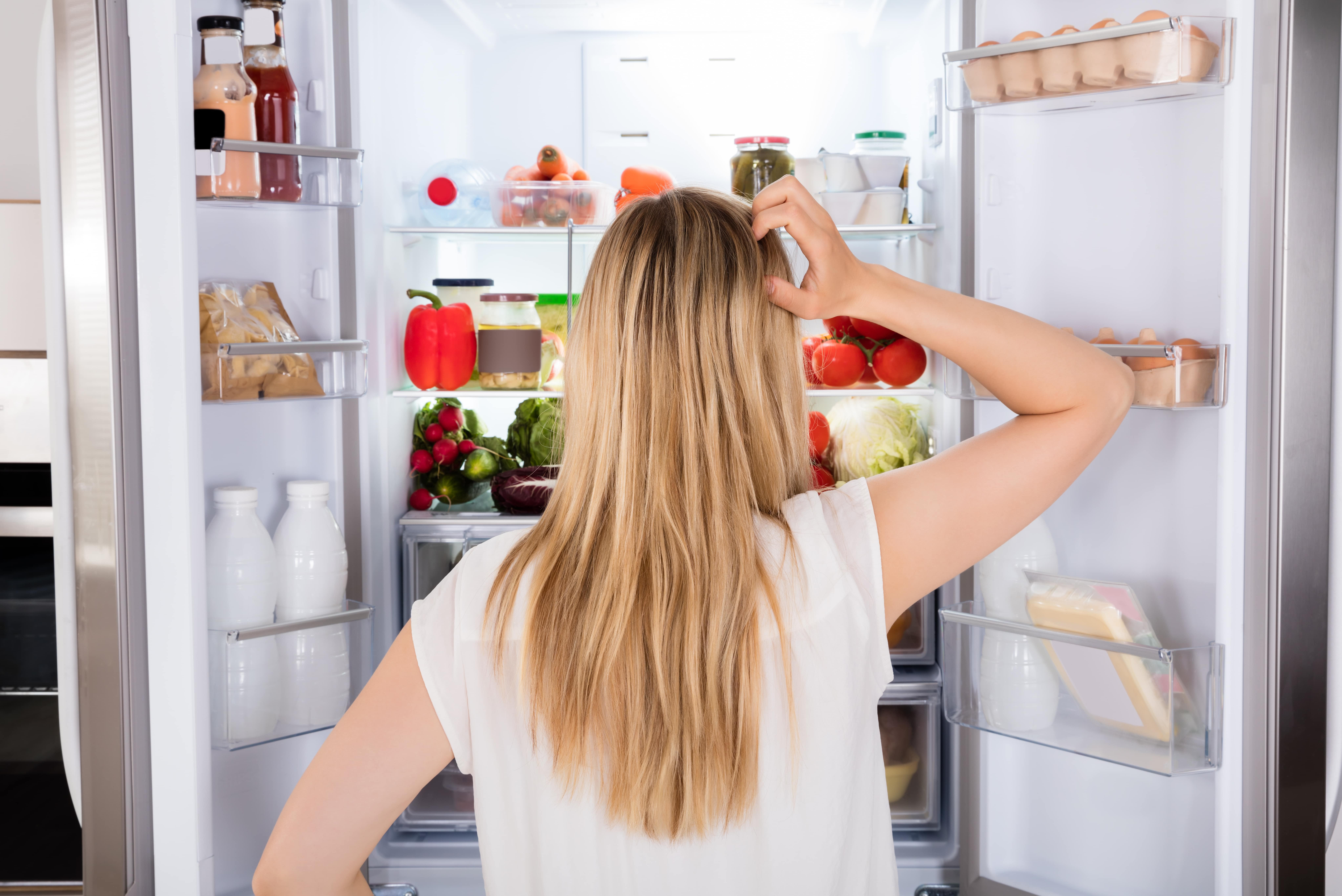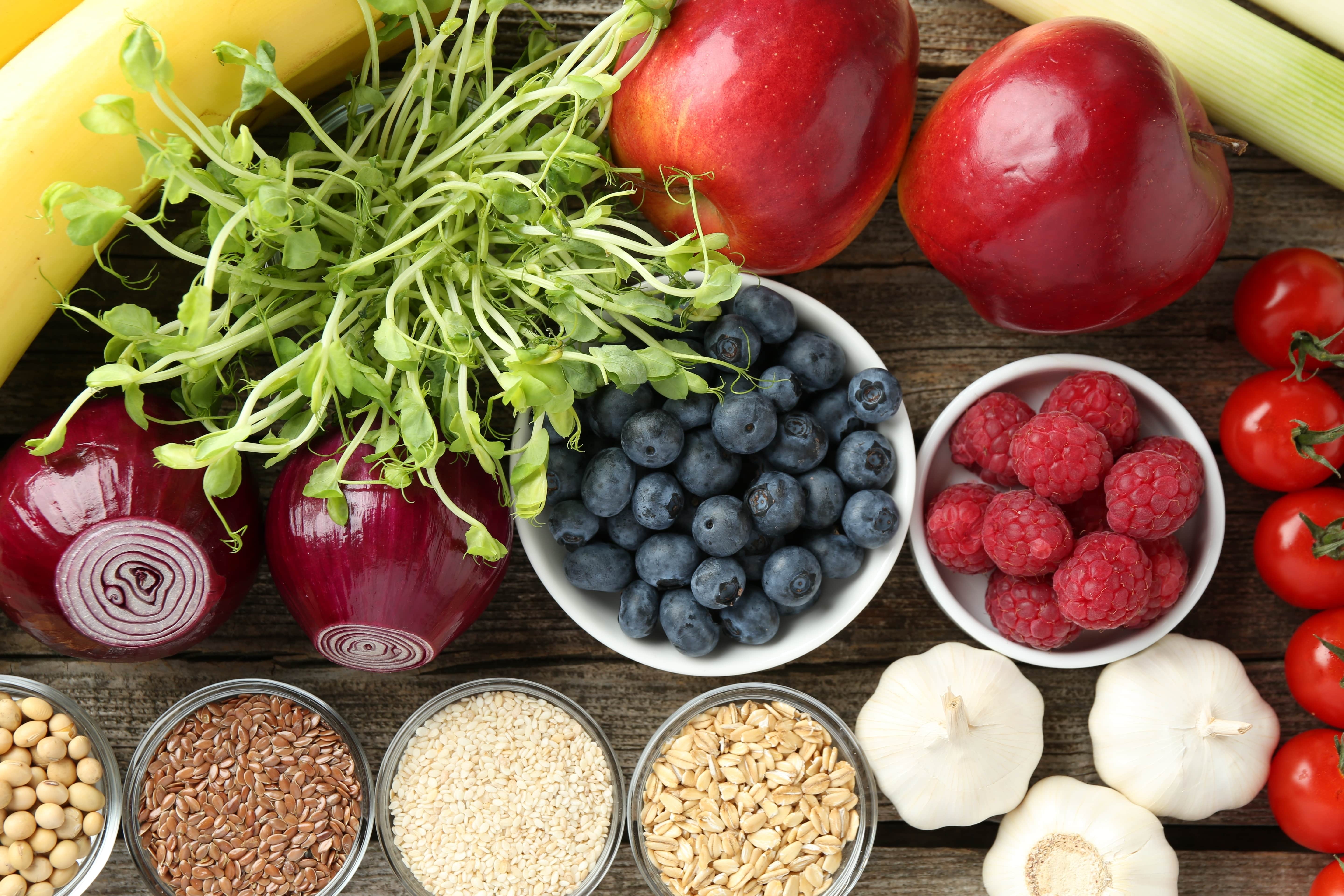Biohacking Your Health: Which Foods Can Help Manage Hair Loss
Last Updated: 05 September 2025

Hair loss can feel frustrating and impact confidence, but nutrition plays a bigger role than many people realise. In this article, insights are provided by Vivere's Head of Nutrition, Yusra Serdaroglu Aydin, a registered dietitian with expertise in nutrition, food engineering and culinary arts. Her approach is rooted in science and shaped by a deep understanding of personalised nutrition and the human microbiome. Here, we explore how diet and specific foods may support healthy hair growth and potentially help in managing hair loss.
Key Takeaways
Here are the five biggest takeaways from this article about foods that can help with hair loss:
Hair health is closely linked to overall nutritional status, particularly protein, iron, zinc, and vitamin D levels.
A balanced diet rich in whole foods provides the essential building blocks for stronger, healthier hair.
Gut health and nutrient absorption play a significant role in ensuring the body benefits from hair-supporting nutrients.
Certain foods such as fatty fish, eggs, nuts, seeds and leafy greens are particularly supportive for hair growth.
Consistency in nutrition, alongside medical guidance when needed, is key to managing hair loss effectively.
Understanding Hair Loss and Nutrition
Hair loss can be influenced by genetics, hormones, stress, medical conditions and environmental factors [1] [2] [3]. However, nutrition is often overlooked as a contributing factor [4] [5] [6] [7]. Hair is made primarily of keratin, a protein, which means the body needs a steady supply of protein and supporting nutrients to produce strong, healthy strands.
When nutritional intake is insufficient, hair growth can be disrupted, and shedding may increase. Ensuring a diet that supports both hair and overall health can make a meaningful difference, especially when integrated into a holistic approach that includes medical advice where appropriate.

The Role of Protein in Hair Health
Protein is the foundation of every strand of hair [8]. Without enough dietary protein, hair growth can slow, and hair may become weak or brittle [4]. Foods such as lean meat, poultry, fish, eggs, dairy, lentils and beans are excellent sources.
Eggs in particular are valuable, as they also provide biotin, a B vitamin closely linked to hair growth. Biotin supports keratin production, and while severe deficiency is rare, ensuring adequate intake can help maintain healthy hair.
Iron and Hair Growth
Iron deficiency is one of the most common nutritional causes of hair loss, especially in women [9]. Iron helps carry oxygen to hair follicles, which is essential for growth [10]. Without enough oxygen supply, hair can enter a resting phase, leading to shedding.
Good sources of iron include lean red meat, chicken, turkey, beans, lentils, spinach and fortified cereals. For plant-based sources, pairing iron-rich foods with vitamin C (such as citrus fruits or peppers) can improve absorption.
The Importance of Zinc
Zinc supports tissue growth and repair, including the health of hair follicles. It also plays a role in maintaining the oil glands around follicles. Deficiency can lead to thinning hair or slow growth.
Foods rich in zinc include shellfish like oysters, as well as beef, pumpkin seeds, chickpeas, cashews and wholegrains. Maintaining balanced zinc intake is important, as both too little and too much can negatively impact health [4] [6].
Vitamin D and Hair Follicles
Vitamin D helps stimulate new and existing hair follicles. Low levels have been linked with certain types of hair loss, including alopecia areata [11] [12]. As many people in the UK have low vitamin D, especially during winter months, diet and supplementation can be important.
Fatty fish such as salmon, mackerel and sardines are good sources, along with fortified foods like cereals and dairy alternatives. Safe sun exposure can also support vitamin D synthesis in the skin, but supplementation may be recommended if levels remain low.
It should be noted, however, that over-supplementation of certain nutrients, including selenium, vitamin A and vitamin E, has been linked to hair loss [4].
Omega-3 Fatty Acids
Omega-3 fatty acids help nourish hair, support scalp health and reduce inflammation that can impact hair follicles [13] [14]. They also contribute to shine and elasticity.
Oily fish such as salmon, herring, sardines and mackerel are excellent sources. Plant-based alternatives include flaxseeds, chia seeds and walnuts, although conversion to active omega-3 forms in the body is limited compared to fish sources.
Hydration and Hair
Dehydration can make hair more prone to dryness and breakage. While water alone will not prevent hair loss, ensuring adequate hydration supports the overall health of cells, including those in hair follicles. Herbal teas, fruits and vegetables with high water content, such as cucumber and watermelon, can contribute to fluid intake alongside water.
It’s also important to mention the role of fizzy drinks and drinks with added sugar. These drinks, when consumed regularly, can speed up hair loss in men [15].
The Role of Gut Health
Even with a nutrient-rich diet, poor gut health can reduce the body’s ability to absorb essential vitamins and minerals. A balanced gut microbiome plays an important role in making nutrients available and supporting overall well-being.
Eating a variety of fibre-rich foods such as vegetables, fruit, legumes, nuts, and wholegrains helps feed beneficial gut bacteria. Fermented foods like yoghurt, kefir, sauerkraut and kimchi may also support gut diversity and nutrient absorption.
Personalised nutrition, like we provide at Vivere, is key to managing issues like hair loss, as well as overall health.
Lifestyle Factors to Consider
Diet is one part of a wider picture. Stress, sleep quality, smoking, alcohol intake and overuse of hair styling tools can also contribute to hair loss [16] [17] [18] [19]. Combining good nutrition with lifestyle changes can help protect and strengthen hair.
It is also important to seek medical advice if hair loss is sudden, severe or accompanied by other symptoms, as this may indicate an underlying health condition requiring professional care.
Foods That Support Healthy Hair
To summarise the most beneficial options, consider including these foods regularly:
Eggs: Protein and biotin for keratin support.
Fatty fish: Omega-3 fatty acids and vitamin D for scalp and follicle health.
Leafy greens: Iron, vitamin A, vitamin C and folate for circulation and growth.
Nuts and seeds: Zinc, vitamin E and essential fatty acids for strength and shine.
Legumes: Protein, zinc, iron and biotin for building blocks and follicle function.
A varied, balanced diet provides the best protection against deficiencies that can contribute to hair loss.
Final Thoughts from Yusra
“Hair loss can have many causes, but nutrition remains a crucial factor in supporting healthy growth and reducing shedding. By prioritising protein, iron, zinc, vitamin D, omega-3 fatty acids and gut health, it is possible to create a foundation that encourages stronger hair. Consistency in dietary choices, combined with a healthy lifestyle and medical guidance when needed, gives the best chance of managing hair loss effectively”.
Vivere helps you take control of your health with personalised insights from state-of-the-art gut microbiome testing, nutritional guidance, science-backed supplements and expert support. Sign up today and start living better, for longer.
Sources
[1] An overview of the genetic aspects of hair loss and its connection with nutrition - PMC
[2] Telogen Effluvium - StatPearls - NCBI Bookshelf
[3] How chronic stress leads to hair loss | Harvard Stem Cell Institute (HSCI)
[4] Diet and hair loss: effects of nutrient deficiency and supplement use - PMC
[5] Vitamins, minerals, and hair loss: Is there a connection? - Harvard Health
[6] The Role of Vitamins and Minerals in Hair Loss: A Review - PMC
[8] “Let Food be Thy Medicine”: Value of Nutritional Treatment for Hair Loss - PMC
[9] Iron Plays a Certain Role in Patterned Hair Loss - PMC
[10] What are the best foods for hair growth and strength? - BBC
[11] Filling the Gaps: Vitamin D Status in Diffuse Hair Fall Among Pakistanis - PMC
[14] Effect of a nutritional supplement on hair loss in women - PubMed
[15] The Association between Sugar-Sweetened Beverages and Male Pattern Hair Loss in Young Men - PMC
[17] Influence of Nutrition, Food Supplements and Lifestyle in Hair Disorders - PMC
[19] Lifestyle Factors Involved in the Pathogenesis of Alopecia Areata - PMC
Author

Yusra Serdaroglu Aydin, MSc RD
Head of Nutrition and Registered Dietitian
Yusra is a registered dietitian with a multidisciplinary background in nutrition, food engineering, and culinary arts. During her education, her curio...